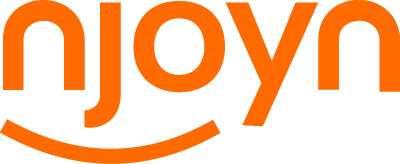
Is hiring bias becoming a hot topic?
We recently wrote two blogs on the topic of unconscious bias and its impact on recruitment: Unconscious bias during recruiting and Helping check unconscious bias at the door.
More information on hiring bias has been hitting the mainstream media in recent months, including a December 26, 2017 article in the Toronto Star, Black job seekers have harder time finding retail and service work than their white counterparts, study suggests.
This article outlines a recent study wherein fictional candidates with nearly identical resumes were each submitted for 64 jobs. Half the candidates had Caucasian-sounding names, and half were given African-American names. Half the candidates also admitted to having a criminal record.
The results were shocking.
- A white applicant with no criminal record had a callback rate of 31.3%
- A white applicant with a criminal record had a callback rate of 18.8%
- A black applicant with no criminal record had a callback rate of 10.9%
- A black applicant with a criminal record had a callback rate of 1.6%
So a candidate with a Anglo-Canadian profile and a criminal record is almost 8% more likely to receive a callback than an African-American with a clean record.
Another Toronto Star article tells a similar plight for Asian Canadians, despite having higher qualifications. Asian job seekers face disadvantage even when they have higher degrees, study finds explains that, “Compared to applicants with Anglo names, Asian-named applicants with all-Canadian qualifications had 20.1% fewer calls from organizations with 500 or more employees, and 39.4% and 37.1% fewer calls, respectively, from medium-sized and small employers.”
Perhaps reports like these are why six federal ministries and departments announced last spring that they will remove information revealing an applicant’s race and ethnicity from the application and resumé to stop hiring biases against minority candidates.
Last year also saw the release of Do Large Employers Treat Racial Minorities More Fairly? A New Analysis of Canadian Field Experiment Data, a joint study from Ryerson University and the University of Toronto. This study examines a wider sample size, and also breaks out hiring practices based on company size. It also calls on modernizing and professionalizing the recruiting process to combat bias:
“A more professionalized recruitment process may influence the degree to which the
review of applicants’ files is systematic, focuses on key qualifications, and militates against
relying on extraneous considerations. Professionalized recruitment may also incorporate
processes of multiple stages, group-based review, and explicit procedures to prevent
discrimination, all of which may give additional opportunity to minority applicants.”
For our part, we’re receiving increasing requests from our clients for technology-based solutions to the hiring bias problem. This has prompted us to develop new features, such as facilitating “blind” hiring panels and the ability to pull reports that strip out personal applicant details, like names.
One client has even asked for a report that hides names, addresses and school locations so that ethnicity, geography and the perceived “class” of the school they attended cannot factor into the evaluation of a candidate.
What is your organization doing to fight hiring bias? Ask us for a demo to see ways technology can help.
Search
Most Popular Posts
150 Commerce Valley Drive West. Markham, ON. L3T 7Z3. Tel: +1 416 553 6756
